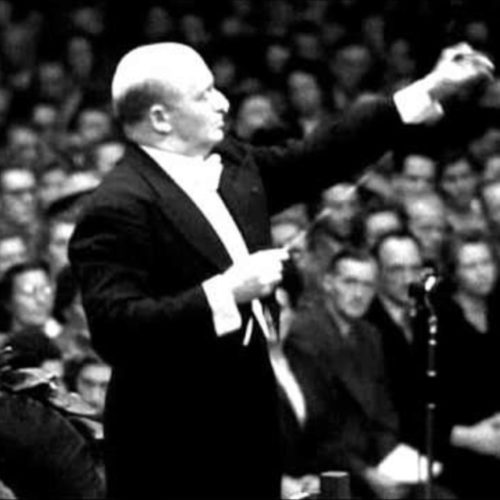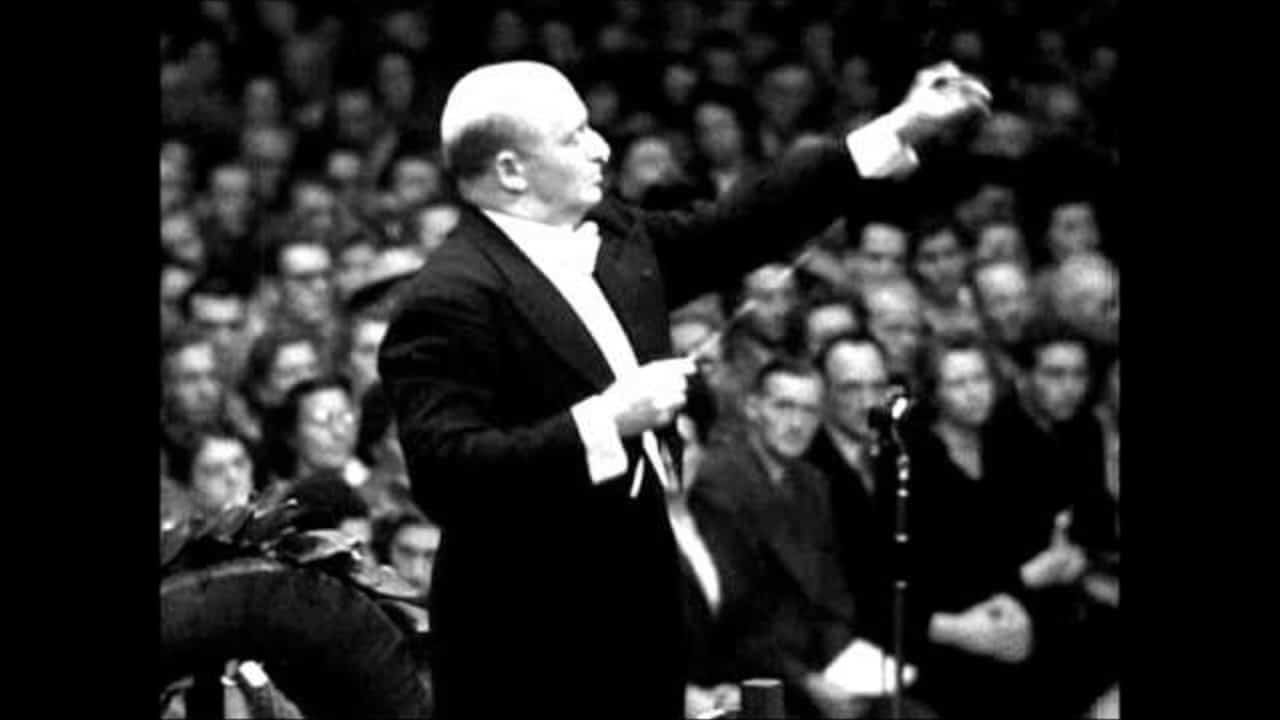Everyone thinks this is the best ever Beethoven Fifth. Er, everyone?
mainWelcome to the 35th work in the Slipped Disc/Idagio Beethoven Edition
Beethoven: 5th symphony, opus 67 (1804-08)
In June 1975, Deutsche Grammophon released a recording of the epic fifth symphony of Beethoven with the Vienna Philharmonic, conducted by Carlos Kleiber (1930-2004). Within weeks, critics the world over were acclaiming it as the finest performance of the work ever to be recorded. There was not, as I recall, a single dissenting voice, not one reviewer who found it in parts too fast, in parts too slow, overall too uneven. There was total acclaim for the recording, an uncritical uniformity that any thinking person must surely find disturbing.
Nearly half a century later, that same unanimity prevails.
Ted Libbey writes on NPR: Kleiber gets the Vienna Philharmonic to play the Fifth as if it were a first encounter. The reading is violent, sinuous, shadowy and impassioned, the effect compelling without seeming overwrought. Kleiber presides over a gripping first movement that goes like a shot, and is to be commended for observing such musicological niceties as the exposition repeats of both the first movement and finale… this disc is to die for.
David Denby in the New Yorker: The Fifth—it’s pretty much the consensus view—is the greatest modern recording of the piece. When Mahler conducted the New York Philharmonic, in the early twentieth century, he tried to get the orchestra to play the opening chords with the proper weight. Well, with Kleiber, you certainly hear it—not just weight, but, as the movement goes on, speed, elegance of phrasing, perfect unanimity, and awesome power.
I have searched reviews in several languages and not found one wildcard, not one reviewer trying to make a name by challenging received opinion. As things stand, it is a truth universally acknowledged that Carlos Kleiber’s 1975 recording of Beethoven’s fifth symphony is ‘perfect’ (a popular, lazy accolade), or even definitive. Most on my panel chose it as one of their essential Bethoven recordings. When I asked the cellist Steven Isserlis why, he replied: ‘Because the music sounds as if that’s the way it HAS to be.’
I must have listened to the recording at least 45 times over as many years and, while I have a few personal reservations, what puzzles me is that rock-like consensus: ‘one of the most electrifying kinetic Fifths this reviewer has ever heard,’ as John Von Rhein wrote about Kleiber’s 1978 performance of the symphony with the Chicago Symphony Orchestra.
That ‘one of’ is pertinent. The very first review, by Richard Osborne in Gramophone magazine, called it ‘one of the most glorious accounts of the Fifth Symphony I have ever had the pleasure of hearing.’ Not definitive, not quite perfect, but a version to rival ‘Klemperer’s memorable Philharmonia recording of 1956 and Karajan’s enduringly splendid 1963 Berlin version.’ On first impression, it would seem that Carlos Kleiber was perceived as very good indeed, if not quite the best. Somehow, a legend of inviolability was manufactured down the years.
When I listen to the recording now, my breath is still taken away by the organic rightness of the opening attack, the rat-at-at-taat knock on the door that Beethoven never explains but is clearly not a visit from the lady upstairs asking if he can look after her cat while she goes out to have her hair done. It is a signifier of historic magnitude and it is no coincidence that resistants under German occupation in the Second World War should have used it as a mark of their refusal to accept the inexorability of external power.
Beethoven is, over the four years in which he wrote the symphony, a resistant to Austrian autocracy and French occupation. As the movement progresses and the motif is repeated, his anger grows at this imposition. Kleiber does rage extremely well. Almost too well. By the end of the movement he is apoplectic. I think, for reasons to be discussed below, that he goes too far.
The andante offers 70 seconds of relief before there’s another burst. This is a volcanic performance and I’m not always convinced of its necessity. The short third movement, a scherzo, is a pushback against power, a protest march led by strings and horns which somehow loses its way and winds up plucking a remniscence of the symphony’s opening theme pizziccato on the open strings, an overwhelming, original effect that fades almost to silence before, without pause, storming into a finale of swaggering survival.
Kleiber callibrates these shifts with uncanny assurance and the Vienna Philharmonic respond with some of the sweetest oboe and clarinet solos you could ever wish to hear. As a stand-alone, this is a performance of immense authority and memoraibility, certainly among the most impressive in the symphony’s history. The trouble is, it does not stand alone.

To understand what Carlos Kleiber does in the fifth symphony one has to listen to his recording against the recording of the same work made by his father, Erich Kleiber (1890-1956), at the Amsterdam Concertgebouw in 1953, a performance regarded as paramount in its time. Carlos confined his repertoire to the that his father did best. By 1974, in his mid-forties, he applied himself to four symphonies, of which the Beethoven 5th was the most central in addressing Erich’s legacy.
With Erich, the opening movement is taut and tough, the andante measured, the third movement restrained and all power reserved for the quick finale, a minute and a half faster than his son. That’s where the anger is unleashed and its intensity is quite frightening. Carlos takes his father’s anger and spreads it around the symphony, moderating it with a sheen of elegance, suppressing the psychoanalytic conclusion that this is the Oedipal anger he never succeeded in directing towards his father.

Much as I revere the Carlos performance, and much as I am fascinated by its psychological implications, it is Erich who has the more honest and convincing approach to Beethoven and Carlos who is left with complications.
You have to hear them both, side by side, on Idagio, and then turn to the alternatives, which we will examine tomorrow.
See if that doesn’t challenge the Carlos consensus.






Comments